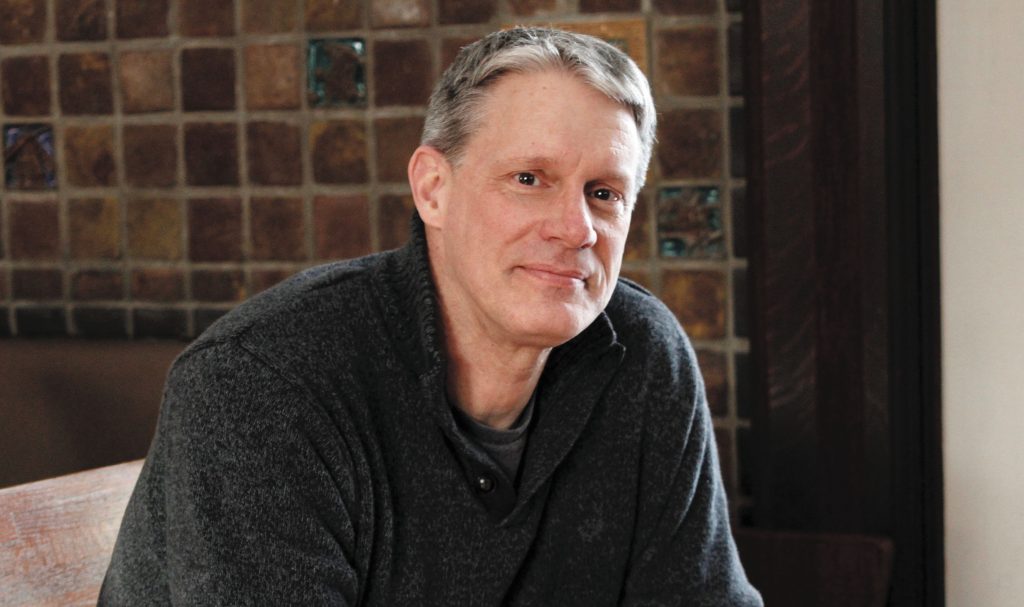My Favorite Podcasts
I’m learning more about theology these days than ever before…and all through two little earbuds.
People who know me well are rolling their eyes. Doug’s over-excited about something…again. There was the men’s movement back in the 1990’s. Then it was the Emerging Church. Now, its podcasts. Theology podcasts.
I don’t remember how I got started listening to podcasts. But at about 4 each afternoon, I don a long-sleeve shirt and a broad brimmed hat and take a long walk in the Sarasota heat. I get my exercise with the bonus of having a solid hour to listen to a podcast.
I’ve listened to a number of podcasts. But I kept coming back to three podcasts that have had a surprising influence on me: Homebrewed Christianity, The New Evangelicals, and The Bible for Normal People.
Homebrewed Christianity

At the top if this threesome is Tripp Fuller’s, “Homebrewed Christianity.” I’d seen Fuller’s brand on Twitter and Spotify. But I was put off by what Iseemed to be an exclusive, beer-drinking, in-group of theology fans. I was pretty sure that I wasn’t going to break into this club. So, I never took enough time to explore.
That was a mistake.
Now that I feel a part of the Homebrewed experience, I’m regretting missing the scores of episodes which Fuller has been putting out at least weekly since 2008. Tripp Fuller’s guests are world class theologians. And the conversation is often lofty and complex. But the format is approachable. It’s like overhearing Karl Barth chatting with John Cobb at the next table in Starbucks. The conversation is cordial and lengthy. There’s always laughter, snarky asides, profanity, and poignant moments close to tears.
Why is this medium working so well for me? I think it is because I’ve never had an opportunity to learn at a conversational level before. We’ve all had books and lectures. These convey intense, high-energy learning. There are television shows and movies. But hanging around for conversations with friends in coffee shops or on long walks has not been available for me or for a lot of people.
That’s where podcasts fill a void. The conversation is flowing along and a book is mentioned. Suddenly, I want to jot down the title. My mind wanders for a couple of seconds and a compelling new idea grabs my attention.
Listening to the voice, the laughter, the banter, the mundane details of everyday life gives a sense of people’s personalities, which greatly aids learning. Tripp Fuller, an ordained Baptist minister, has long ago shed any evangelical starch and stained glass bearing. He strikes me as a geeky teenager with a world-class standing as a theologian. And he’s funny, faintly flirtatious with some of the female guests, and energetically loquacious, sometimes talking more than the academics who agree to be a part of the podcast. He brews beer and has gone deep into Tolkien’s “Lord of the Ring’s” books. I’ve probably listened to him for 20 hours of conversation and he hasn’t gotten tedious.
And I’m learning a lot. I’m moving to the left theologically. And now, much of my reading has been prompted by what I’m hearing on Homebrewed Christianity. This is like a bonus theological education. At no cost.
I marvel at Fuller’s guest list. He regularly books such authors as Diana Butler Bass, Walter Brueggemann, John Cobb, Catherine Keller, and Kristin Kobes Du Mez. I’m not sure whether Tripp pays his guests. It may be that an author’s exposure to Tripp Fuller’s audience is ample vocational compensation. In today’s environment, academics may welcome the opportunity to be heard by large, sophisticated, global audience.
I would not be surprised if Homebrewed Christianity turns out to be the English language’s largest theological podcast.
Often guests will appear in conjunction with the release of their newest book. But instead of rehearsing the book’s argument, Fuller’s guests will chat about their personal attitude towards what they have been studying. To listen to Homebrewed Christianity is like pulling up a chair, ordering a beer and listening in on a brilliant and personal conversation. I’m thinking that Homebrewed Christianity would be a very inviting way for novice theologians to be guided into the best of current thinking.
The Bible for Normal People
Second on my list is Pete Enns’, “The Bible for Normal People.” Enns checks all the boxes for status as a scholar including a Harvard PhD, several books, and an appointment to the faculty of Westminster Theological Seminary in Philadelphia.
It’s his academic career that came Pete’s record scratch. As Wikipedia puts it: “His publication of the book Inspiration and Incarnation led to institutional strife and the eventual loss of Enns’s teaching position at Westminster Theological Seminary by 2009.” Put plainly, Pete got kicked out of the evangelical world because he strayed off the conservative reservation.
Of course, Pete landed on his feet with a new faculty position at Pennsylvania’s Eastern University. And of course he has continued to publish and teach and now produces, often in collaboration with Jared Byas, a high-quality podcast.

Sometimes Enns will present the podcast on his own with no guest. These sessions are amazingly worthwhile. Most recently, Pete’s topic was the Book of Leviticus. He does an amazing job making what might seem like a dry topic accessible. Of late, I’ve rediscovered the Book of Revelation and I consulted “Bible for Normal People” and found two excellent presentations, one by Brian Blount and one by Martha Himmelfarb on apocalyptic and the last book in the Bible. So, the past episodes make a valuable reference resource—all in podcast format.
The New Evangelicals
Third on this list is Tim Whitaker’s “The New Evangelicals.” My quick take on Tim Whitaker, who is a professional drummer, is that he is that he is a natural theologian and Christian leader, who has yet to receive formal training. I find Tim’s story compelling. He grew up in a staunchly evangelical home and in his young adulthood, found himself as a lead drummer in successful megachurch startups.

Tim found many things about his successful life as an evangelical worship leader, quite uncomfortable, including his church’s cavalier attitude towards wearing masks during the Covid pandemic.
Tim’s struggles with his congregation. At length, Tim launched his podcast, which he attempted to keep away from his role as a worship leader. In the podcast, Tim discussed objections to evangelical doctrines and practices. And at the end of 2020, he launched “The New Evangelicals.”
In 2020 Tim was deconstructing his faith, which is to say he was drifting away from evangelicalism. And being as expressive as he is, Tim could not keep his struggle a secret.
After Tim started the New Evangelicals Podcast, his pastor called him and informed him that he would no longer be a part of the church’s music ministry. Tim had the worship team drummer’s version of Pete Enn’s experience.
Tim Whitaker appears to be supporting his household by drumming professionally on the weekends and from freewill donations by his listeners.
Itr doesn’t surprise me that hundreds of people, many of them deconstructing, find safety and enlightenment in Tim Whitaker’s ministry. He is a disarmingly agreeable person and respects his guests and listeners. Importantly, he shares with thousands of people the fact that he is a refugee from the intellectually stultifying character of evangelicalism.
Of the three podcasters, Tim seems most emersed in his own, “deconstruction,” which means discarding the warped practices of today’s abusive evangelical congregations while trying to hang on to the enduring values of Christianity itself. According to ethicist and academic, David Gushee, there may be as many as 20 million evangelical Christians and former evangelicals who are doing just what Tim Whitiaker is doing–questioning their faith.
It appears to me that our time’s most exciting theological ferment is in this deconstructing movement where Tripp, Tim, and Pete are leading voices. A huge group of Christian believers carry wounds from their church experience. They have mustered the nerve to speak up, and even leave. They are talking to each other. It’s significant that these three podcasts are all hosted by former evangelicals.
The growing popularity of podcasting is the perfect medium for a significant percentage of America’s Christian population to make public their reconsideration and recovery of faith. Deconstruction doesn’t confine itself to a handful church issues or beliefs. Instead, the massive number of deconstructing evangelicals seem interested in just about every imaginable dimension of faith, be it redemption, mission, the nature of creation and humanity, and on and on. It’s like going to seminary and re-considering everything I thought I knew.
Tomorrow, I’ll start an online class on Process Theology sponsored by Homebrewed Christianity. I’ve never been entirely clear about what Process Theology is. Now, I’m going to enjoy a structured course on the topic. As I understand it, Process Theology is particularly insightful for thinking about the climate crisis. This adventure has been prompted by that hour long afternoon walk where much more is going on in my thoughts than passers by could ever imagine.
Podcasts are readily available and free. The only difficulty is sorting the quality ones from frivolous ones. I’ve listened to “The Phil Drysdale Show,” “Evangelicalish,” “Queer Theology,” “Crackers and Grape Juice,” and others. All of these are good. But, what distinguishes my three favorites is that they don’t become tedious.
So, churches are collapsing. People are leaving. But…a huge group of churchless, Jesus followers are talking about God and faith more than ever.
